Humanities & Social Sciences
Mak Luminaries Call for the Promotion of Humanities & Literature in Uganda’s Education System for a Balanced Citizenry with Human & Moral Values
Published
1 year agoon
By
Jane Anyango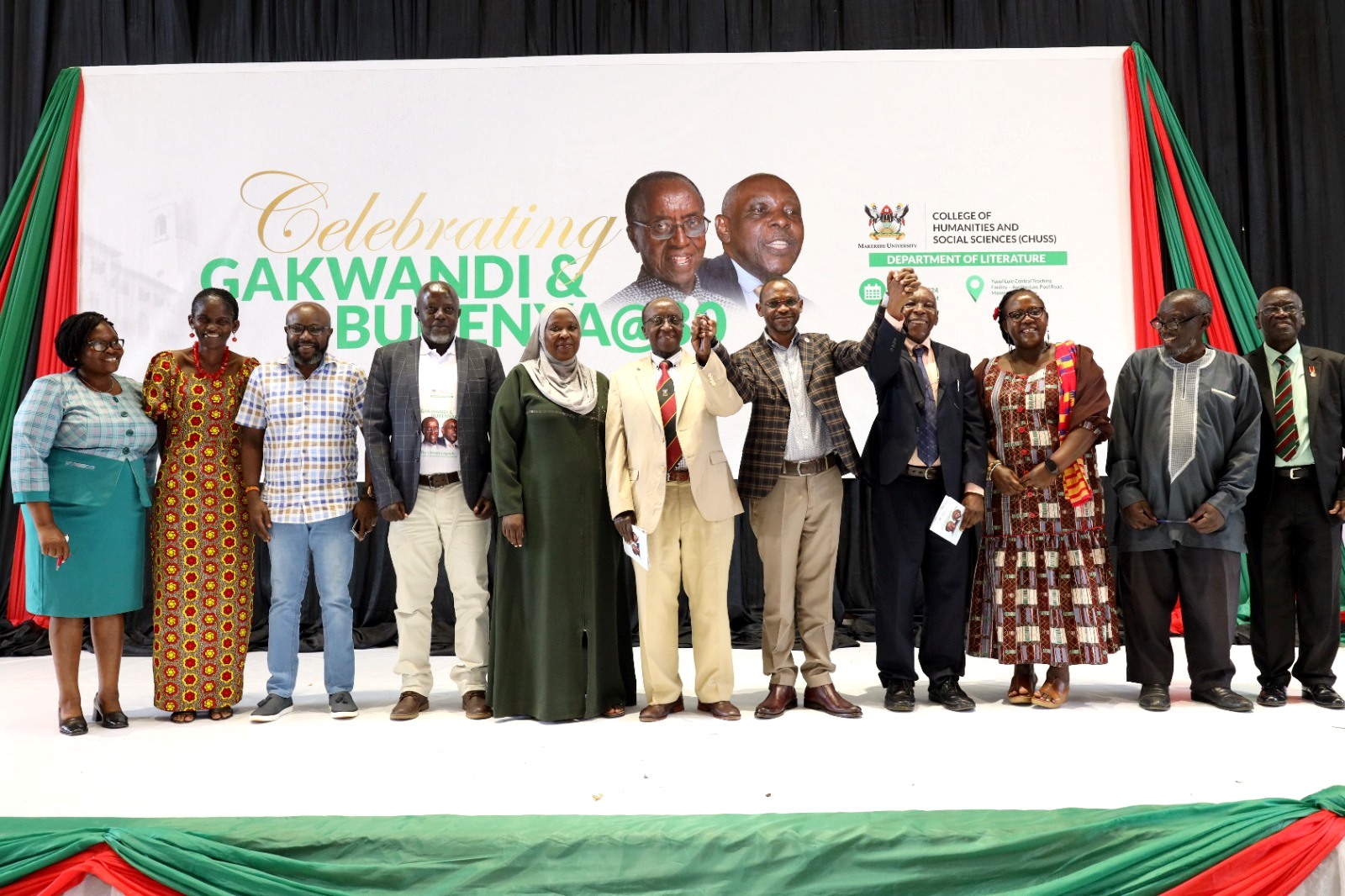
Makerere University Literary legends Prof. Arthur Gakwandi and Austin Bukenya have commended government effort in promoting Natural sciences and building the middle class economy with reservations.
Whereas promotion of natural sciences is backed by good intentions, the professors contend that downgrading humanities and social sciences will result into a population without human and moral values.
They proposed that ,for holistic human development, both natural, humanistic and social sciences must be promoted.
The two professors were speaking during their 80th Birthday on 5th April 2024 at Makerere University‘s Yusuf Lule Auditorium. The Department of Literature in collaboration with the School of Languages Literature and Communication and the College of Humanities and Social Sciences organised a half day literary event codenamed: Celebrating Literary Legends: Gakwandi and Bukenya@80 aimed at recognizing, celebrating and debating these two literary legends as part of Makerere’s literary luminaries that have contributed to her indisputable literary iconicity. Arthur Gakwandi and Austin Bukenya are seminal writers and literary scholars in Makerere University and Uganda’s history, widely celebrated beyond Uganda’s borders.
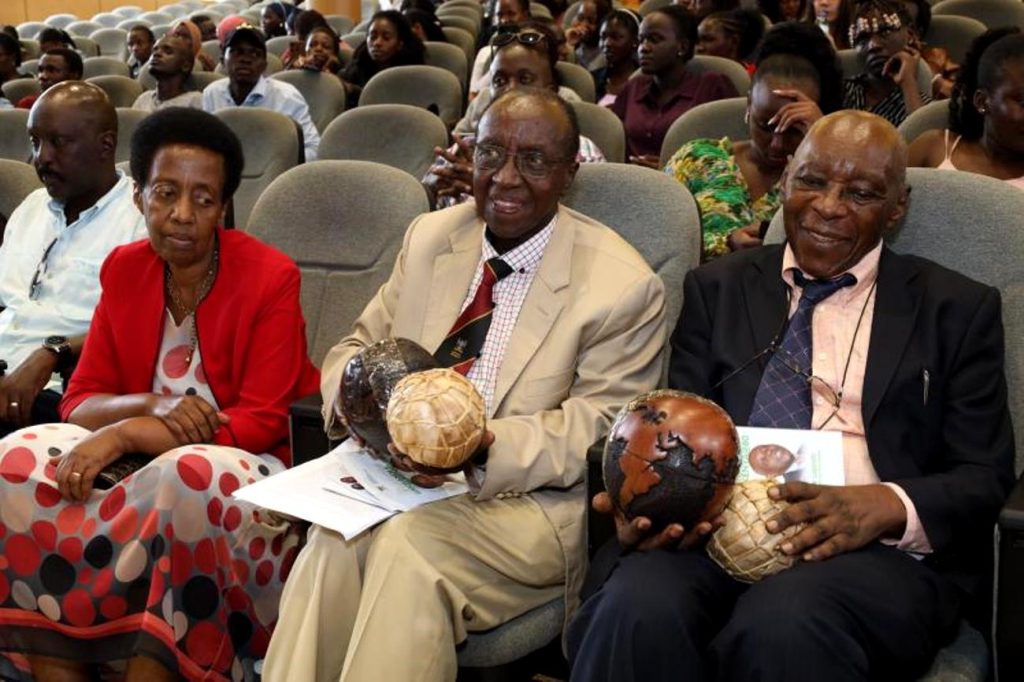
Reflecting on the Ugandan Society for the years he has lived and where the country is heading, Prof. Arthur Gakwandi noted that Government has focused and made progress in expanding the middle income class. He however noted that no one is concerned about the kind of middle class being created.
“I see people driving huge land cruisers on the highway and they lower window screens and throw bottles and banana peelings in the middle of the road. This is the middle class. I see people having a lot of money but peddling conspiracy theories, exchanging insults. Is that the kind of middle class we want? Gakwandi wondered adding that:
“So we are racing to improve the economy, introduce science by giving further incentives but Ubuntu which is the oil that creates the society, the personal relationship between people is lacking. I see people building walls around themselves and people do not know each other and only interact with money.” Gakwandi stated
Gakwandi expressed fear that the country is creating a middle class that does not serve people.
The middle class, he said is supposed to balance between the rich indulgences and lack of concern by those who are privileged on one hand, and those at the bottom who have no voice and are trapped in poverty. But if we have a middle class that does not play that role, then it’s not serving its society.
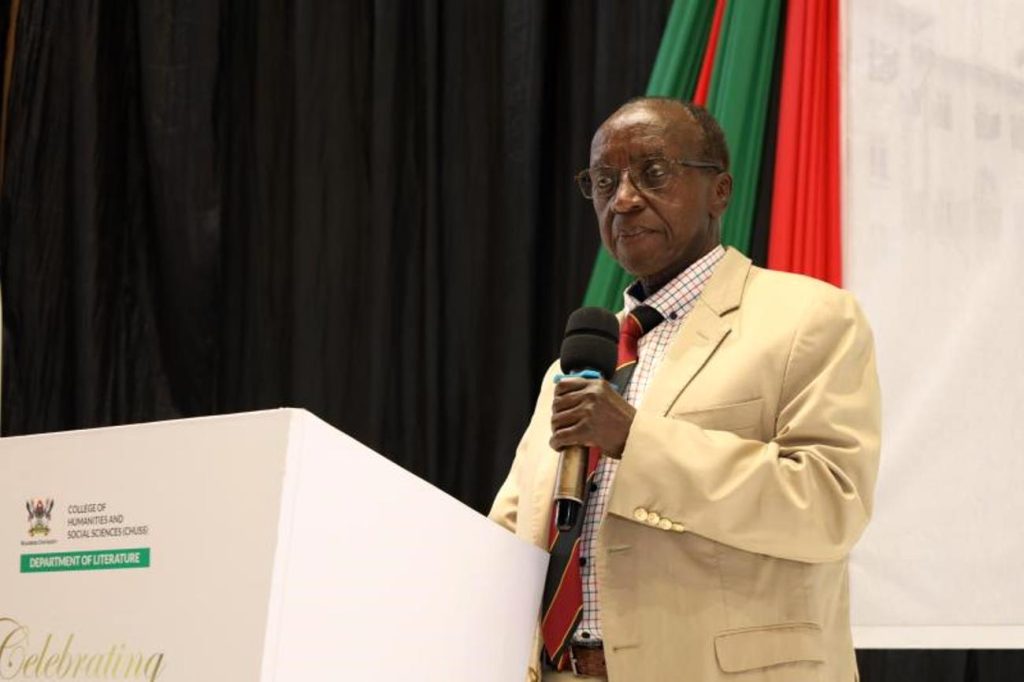
Prof. Gakwandi justified the unique power of the humanities and social sciences – Literature inclusive.
The unique power of literature according to Prof. Gakwandi is to enable readers to enter the lives of other people to experience their pain, their pleasures , their ambitions and their fantasies which, no other discipline comes close to.
“History can tell you how many people died in the 2nd world war, who were the principal actors and their roles in determining the outcomes. Even science can tell you the role of technology, the role it played in tilting the balance and economics can assess the impact of the war on economies of the countries.
But none of these can convey the personal anguish of the people who were caught up in various localities during the phases of the war, but, a novelist can capture the impact of the social and emotional life of those who were caught in the war. And when you get emotionally connected to people, you stop regarding them as statistics. So it is important to make Literature an important element of our education system and promote literature as a life-long source of leisure that has the ability to connect”, Gakwandi stressed.
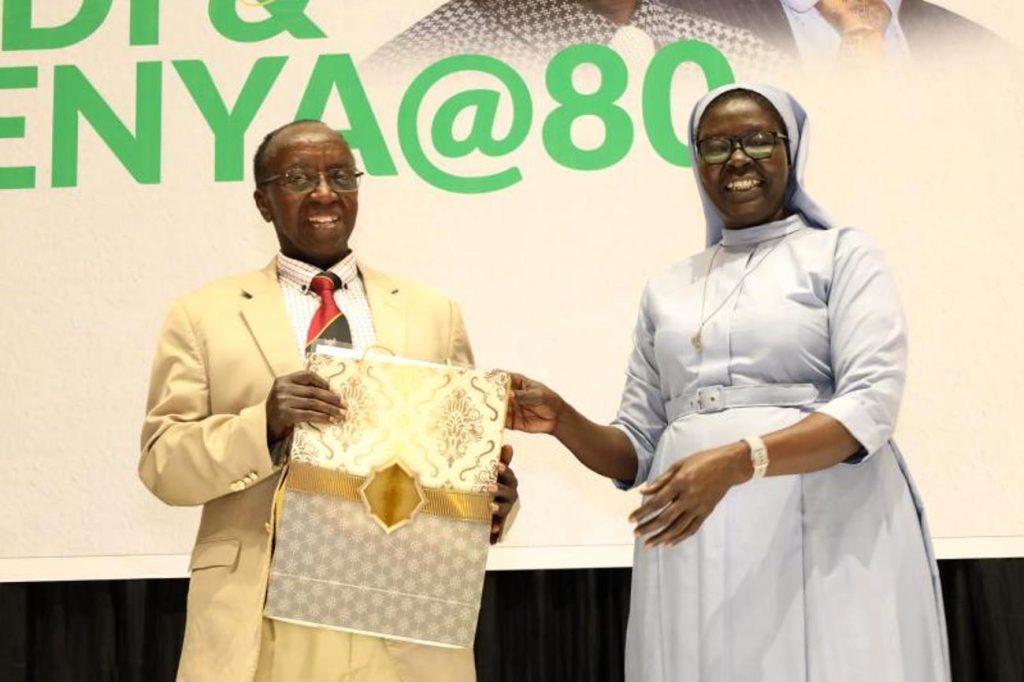
Prof Gakwandi commended the department of Literature for the recognition and courteous relationship nurtured over the years.
“What is most touching is that I keep reading the Ugandan newspapers about people fighting for office, jobs, undermining each other and trying to exclude others so as to take their positions. What has been good at the Literature department where I have spent so many years is that we had such a good courteous relationship with each other and myself, I left the department three times and every time I came back, they were happy to welcome me back. There was no rivalry, no competition…” He added
He saluted the leadership of literature department for thinking about this kind of occasion to recognise the contribution made to the growth of the department adding that he feels gratified that people that he taught have ascended to levels of professors.
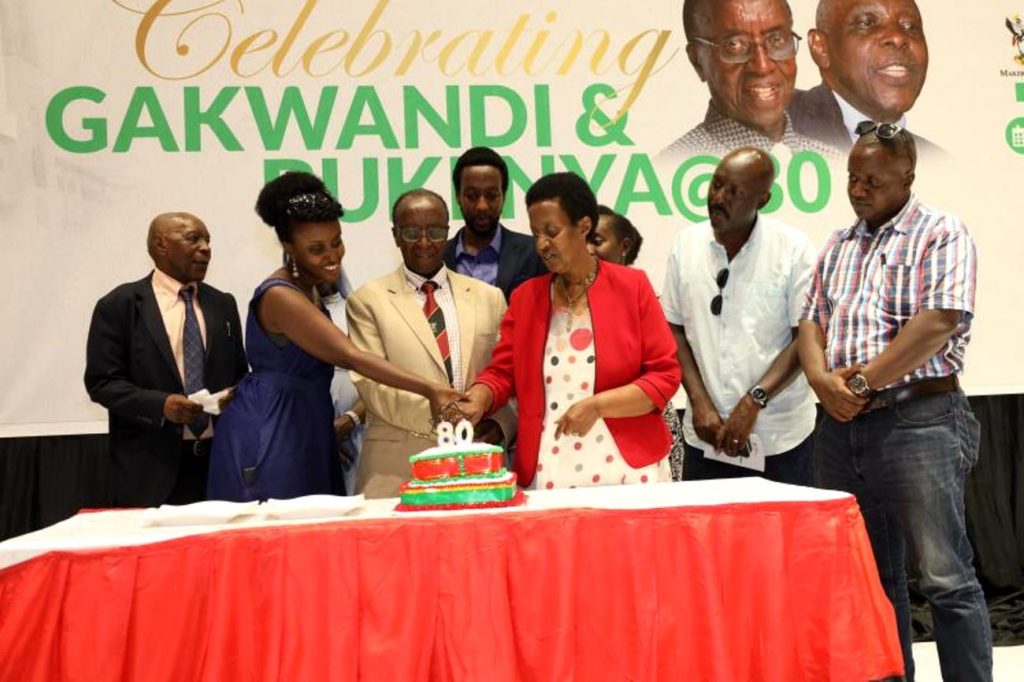
Humanities are being systematically degraded, ignored and underfunded – Prof. Austin Bukenya
Prof Austin Bukenya observed that the humanities are being systematically degraded, ignored and underfunded.
“We have to mount a certain fight to keep the humanities on the front path. We write not simply to pleasure ourselves but we write in order to sustain and develop society.
Bukenya called for respect of humanities and social sciences if the country is to produce a civilised middle class population.
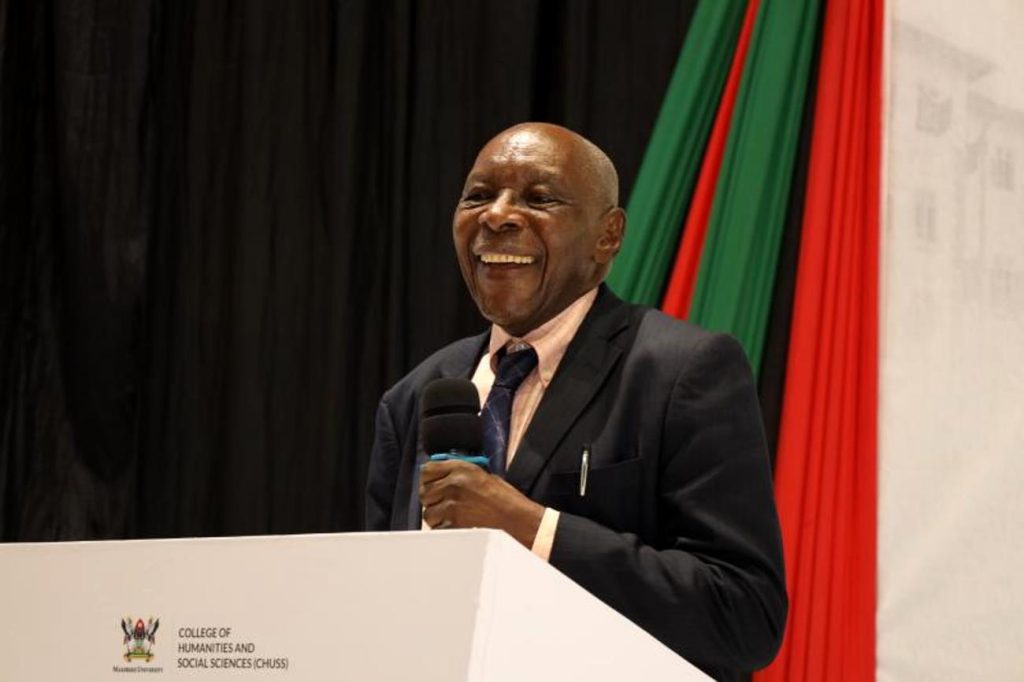
“The sciences are going to help us advance technically and economically but they are not going to help advance humanity –the Ubuntu. Please, make humanities including literature visible, desirable and acceptable.
Philosophy teaches you to think. Language teaches you how to communicate and literature teaches you how to feel and those are the processes of humanisation. We need a human society not just a country of mechanical robots”, Prof Bukenya appealed and dismissed as false the reasoning that humanities and social sciences are unemployable.
Offering guidance on how to make lives worthwhile, Prof Austin Bukenya advised participants to have passion, love and faith.
“Be driven and have passion for things that you care and feel strongly about and they will keep you going. Secondly love yourself and other people. But if you don’t love yourself, you can’t love other people and you will have low esteem. Everybody has something to contribute to your being and thirdly, have faith and believe in yourself and others especially the potential in other people to do good”, These, Bukenya said kept him going and loving his students
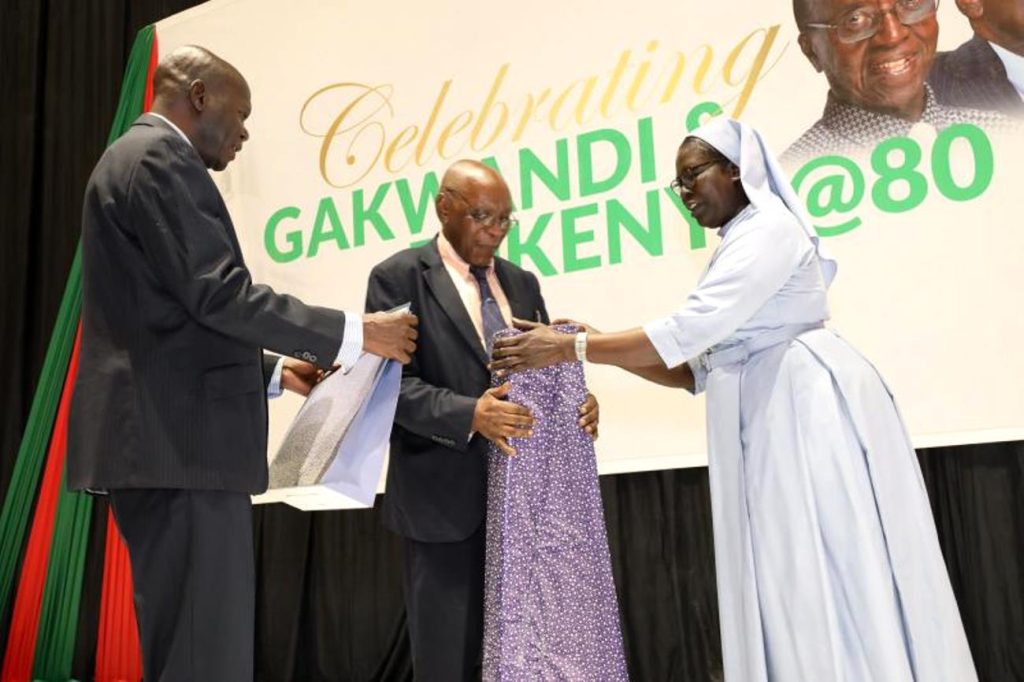
Vice Chancellor honors Gakwandi and Bukenya as unrivalled class of academics
Presiding over the function as Chief guest, the Vice Chancellor represented by his Deputy in charge of Academic Affairs Assoc. Prof. Umar Kakumba hailed the Department of Literature for making it part of their vision and aim to celebrate the people that have built for the future, describing the initiative as a great part of the ubuntu philosophy, to share the joy and achievements of those who have gone before them, and working toward inspiring the future generation.
“Their achievements outshine most of us, but also remind us that the academic journey ahead many of us is something we ought to take in order to be like they are or even greater than they are. After all, the latter generation must build on what they have found ”, Kakumba stated
He said the nature of scholarship these two gentlemen nurtured serve as a reminder of the centrality of both the literary and creative arts to human development and humanity.
“While we read stories about the characters they have created, we are reminded of our situation in the world, and how important it is to see the human being as the focus of our relationships. I am sure the students’ performances will not only entertain us, but will awaken us to the truth about our being in a world that needs healing, laughter and celebration. This is what we do in Africa when we celebrate people. This is what makes CHUSS and the Department of Literature unique”, Kakumba emphasized adding that:
“Bukenya and Gakwandi belong to a class of academics that are unrivalled. Having shared them with the world, both in academia and diplomatic service shows that Makerere truly takes its place on the world map. I have heard what they have studied and dedicated their lives to, showing that we have played in a role in building both theory and practice of the literary arts.
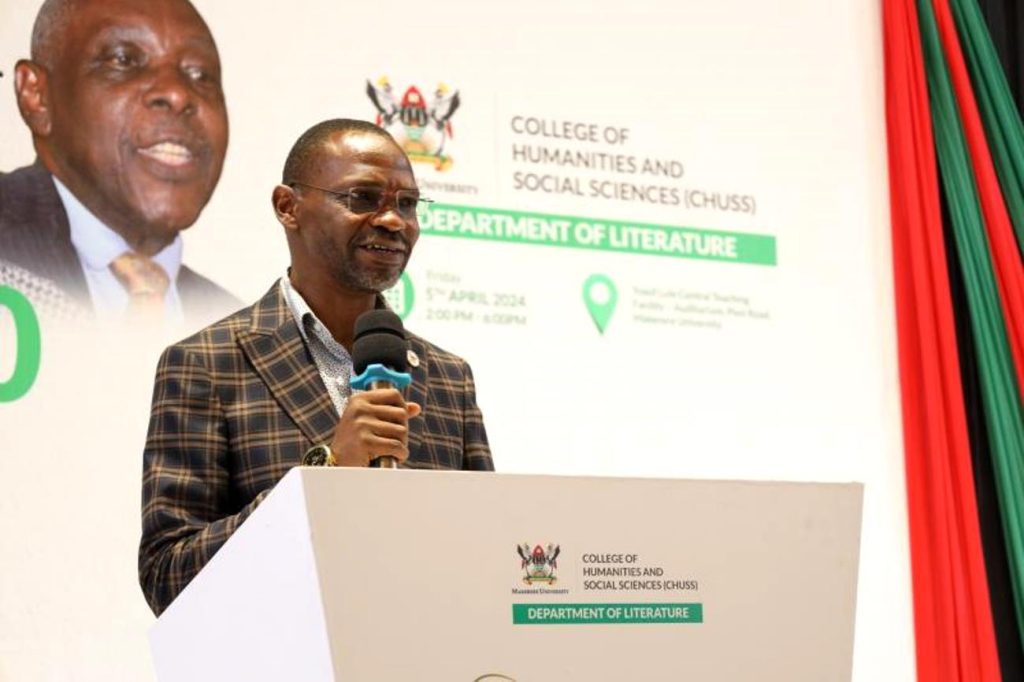
This is a journey that many of us ought to take. What they have built, we must build further and never let die. Orature is a central field of study in the Department of Literature. Seeing the man who gave it its breath seated here with us is not only awe-striking, but humbling. That is what makes the academy an amazing place”.
“Today, as we celebrate these two legends, we are reminded of our place in the twenty first century. We give due honor to the people that played a part in making the academy a place where debates and conversations about life start and keep happening. It must not end here. It is a tradition we must continue. This is what keeps our disciplines alive”, The Vice Chancellor lauded
Gakwandi and Bukenya make life real – Prof. Josephine Ahikire
The Ag. Principal College of Humanities and Social Sciences Prof. Josephine Ahikire described the day as an occasion to celebrate the practitioners of life, for this is what Literature is about.
“Literary legends like Gakwandi and Bukenya make life real or like our students say “ They make life tick”, because they talk about, reminisce, reflect, debate, analyse, comment and simultaneously live life. In short they bring life to life”. She said
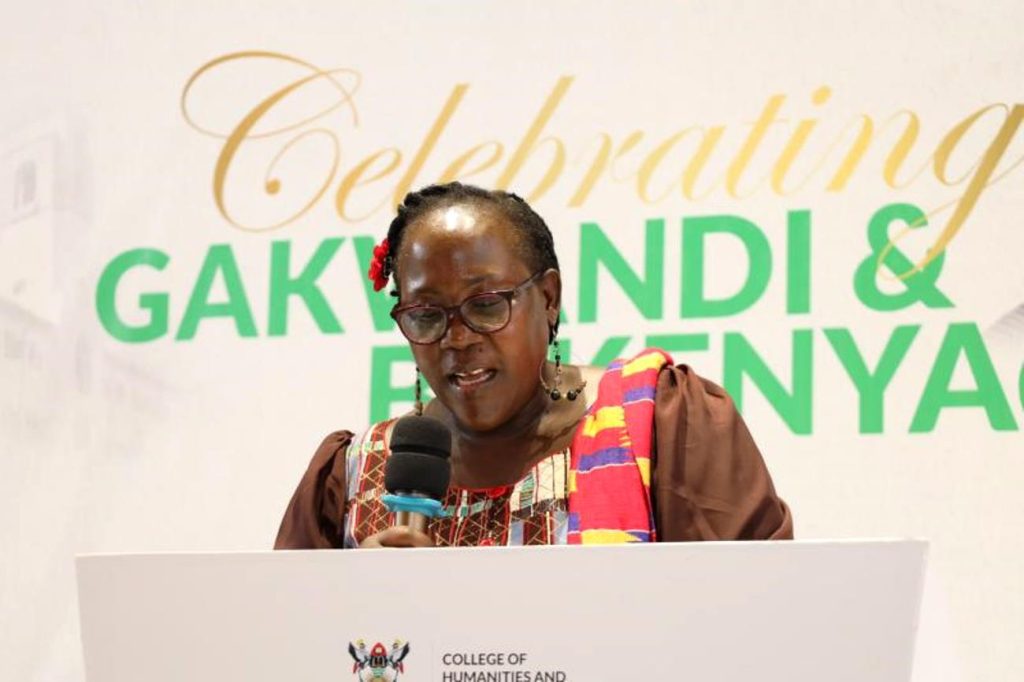
In 2022, Ahikire reported that the Department of Literature celebrated the lives of literary giants: Rubadiri, Ngugi and Wangusa but that time each icon had a separate platform. This time round in 2024, she explained, the department decided to reinvent its style and try out a double portion approach celebrating Prof Gakwandi and Prof Bukenya on the same afternoon.
“This afternoon the College of Humanities and Social Sciences is sitting at the feet of two literary legends to show strongly the great heritage we are so very proud of. Prof Gakwandi and Prof Bukenya have nurtured the Department of Literature and its sister departments through challenging times.
They carried out the work of sustaining the name of this university through the Amin years and at some point the situation was so tense that they had to leave or they would have been lost in the mist of violence. We are grateful for their resilience, prudence and for their courage as well as for always living for Makerere and Uganda even for the times when they were far away from here”, the principals appreciated.
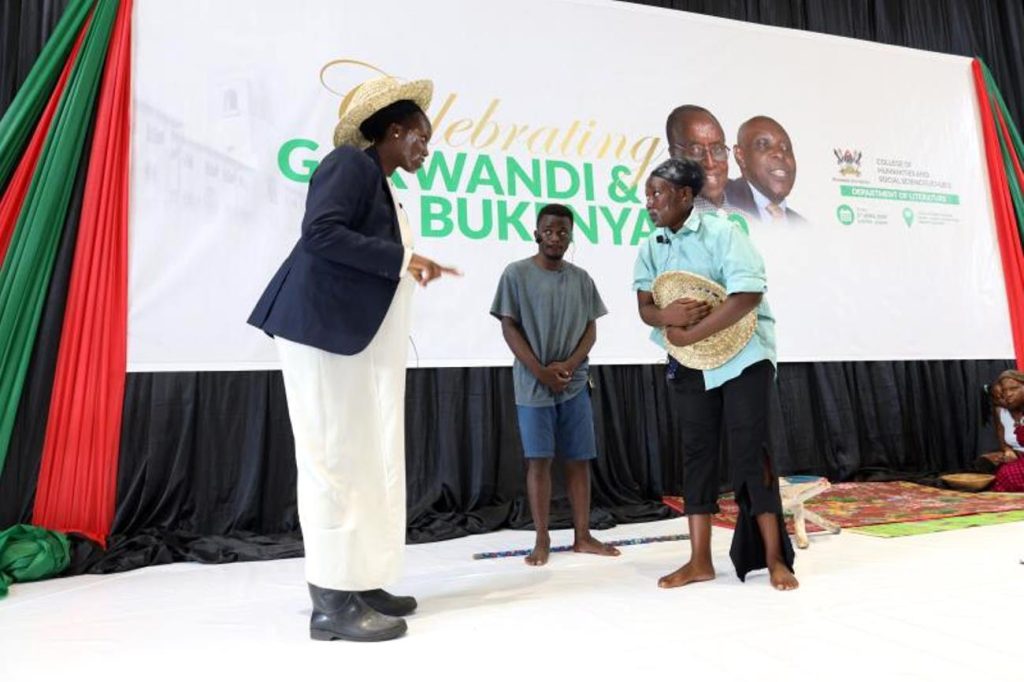
Prof. Ahikire also stated that this event put the student community at the centre of the celebration so that they understand the importance of pillars. The literary scholar Ngugi wa Thiong’o keeps insiting that all scholars that use the term orature to talk about Africa’s wealth of verbal arts should acknowledge that Pio Zirimu and his student Austin Bukenya while here at Makerere University coined the term which is being used world wide.
“We celebrate Prof Gakwandi in equal measure and acknowledge the foundational work he carried out in demonstrating how the African novel was relevant to contemporary experience and building a base for African literary criticism from the perspective of an African critic. We also take particular note of the work he has done in the field of creative writing as a mentor and a creative writer himself,” Ahikire stressed.
She was hopeful that students will look with pride and admiration to Gakwandi and Bukenya’s unique and time-tested efforts and choose to continue Makerere’s vibrant legacy of ‘building for the future’.
Prof Gakwandi and Mwalimu Bukenya are crucial pillars – Assoc. Prof. Saudah Namyalo
The Dean, School of Languages, Literature and Communication Assoc. Prof. Saudah Namyalo said, the school was proud to present two courageous voices whose academic and creative work embarks on journeys that crisscross from the real world to the imaginative and from the imaginative to the real world to teach the values of being fully human.
“As a school, we are proud to celebrate two eminent literary critics and creative writers in Makerere University and Uganda’s history. Prof Gakwandi is widely known for his novel Kosiya Kifefe and its ideas on colonial and post independence experiences and for grappling with thoughts on the transitions between the city and the village, poverty and privilege. Prof. Gakwandi both as a literary critic and creative writer has demonstrated that stories and their analysis keep us connected to our communities but also make us aware of human folly” the Dean stated.
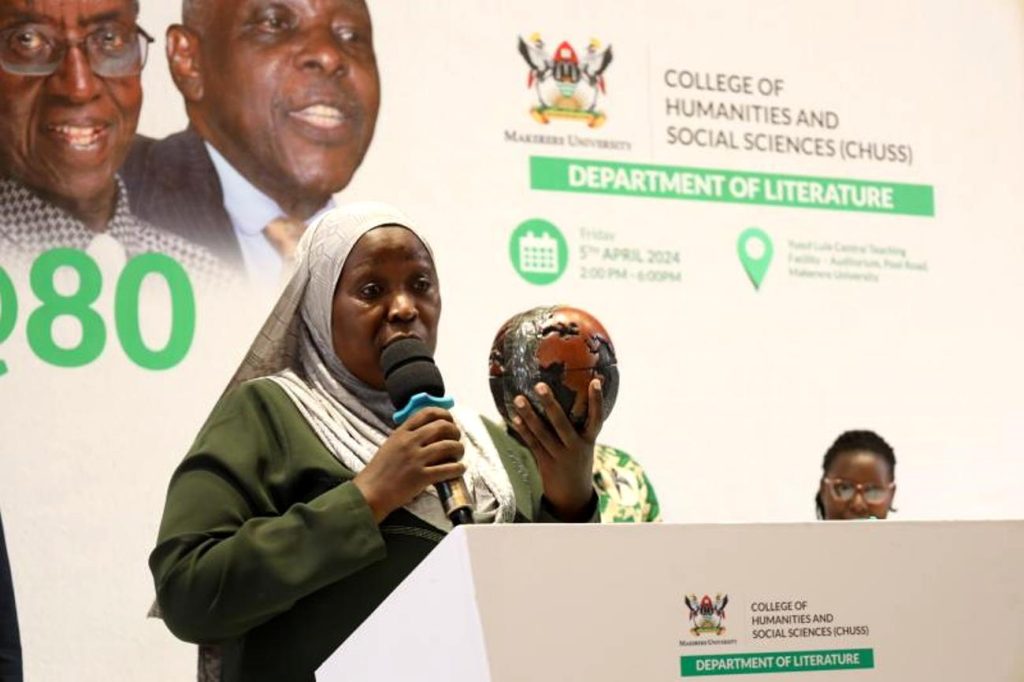
In Mwalimu Bukenya, the Dean explained that school was celebrating a man who has been hailed as a true East African, who is at home in all East Africa, and is claimed as belonging to the whole region.
“In fact sometimes our Kenyan siblings do point out that the man’s name has the word Kenya in it so he truly belongs to Kenya even by name. When he speaks Kiswahili the Tanzanians turn and tell us to send their brother back home. When Makerere Counts the years he has served here, they feel justified to say that his roots are indeed here. So the school is proud to name you, Mwalimu, among its own and to celebrate you on Makerere grounds, your first academic home”. Said Namyalo.
She thanked the Department of Literature for giving a chance to students to recognize the achievements of those before them, so that they too can be inspired to craft brave new worlds to insist that the study of humanity is valuable and priceless.
Gakwandi and Bukenya opened my academic career – Dr. Edgar Nabutanyi
The Head Department of Literature Dr. Edgar Nabutanyi thanked Prof Gakwandi and Mwalimu Bukenya for giving the university this honor to celebrate them.
Nabutanyi expressed gratitude to the Vice Chancellor for making time to celebrate with the department and for continuously heeding to the department call.
The head also thanked the Dean and Principal for untiring support to the department given the numerous activities they engage in. Nabutanyi extended appreciation to Chair organizing committee for the successful organization of the event.
Dr. Nabutanyi introduced and thanked outstanding members of staff who have won national and international awards to show the genealogy of great work that the department of Literature has produced. He said the winners stand on the shoulders of the giants like Gakwandi and Bukenya being celebrated for their great work.
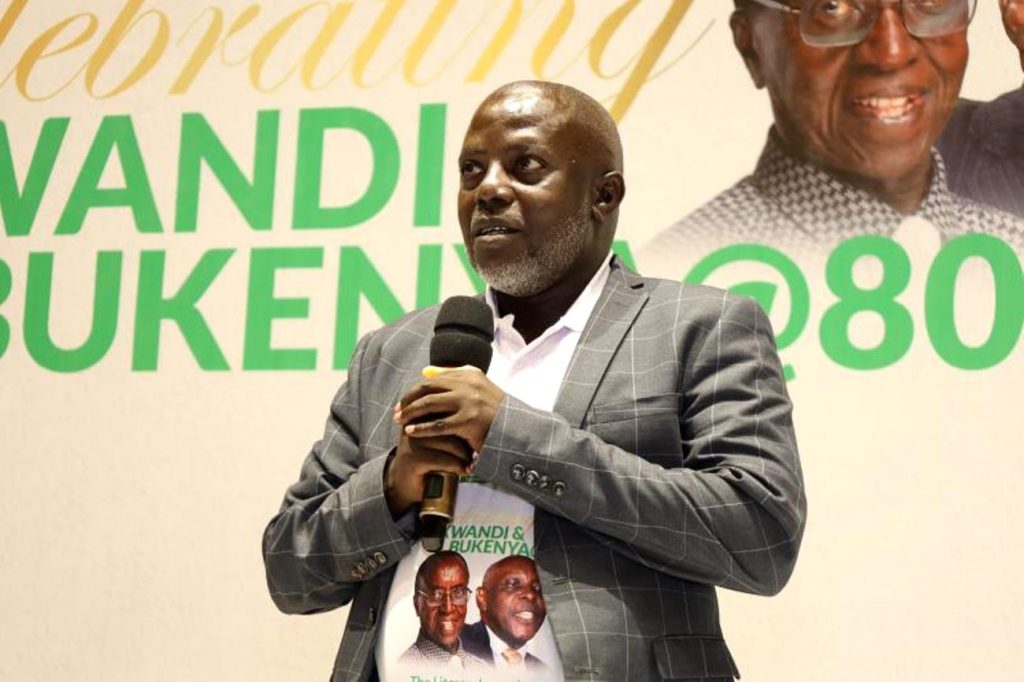
The two celebrated gentlemen according to Edgar Nabutanyi are important in his life.
“In mid 2000s I was assigned Prof. Bukenya as my supervisor for MA and during those days, I was young and thought I was clever and I had an exaggerated sense of what I could do as a dissertation. I told him I wanted to read the African Novel using the architype theory. He spent ten minutes explaining what architype were and recommended Prof. Gakwandi’s book and the novel – Contemporary experiences in Africa.
This, in a way opened my academic career and a few years later, Prof. Abasi Kiyimba during my defense of my thesis commended me for having done good work and mastered not only the theory but also the area”. He narrated
Dr. Nabutanyi continued to attribute his success to the two celebrated professors citing that during his teaching career at O-level, his student nicknamed him Kifefe in shortened form as Kife and the name is still popular with students he taught that time.
He said the two, Gakwandi and Bukenya have been influential expressing hope and pledged that the new crop of students will live to the good works that these elders have done.
He thanked Prof. Gakwandi and Bukenya for gracing the corridors of the literature department and doing the wonderful work. He also extended gratitude to their families for sharing with them.
The Chair Organising committee thanked all participants and the Gakwandi and Bukenya family for gracing the occasion.
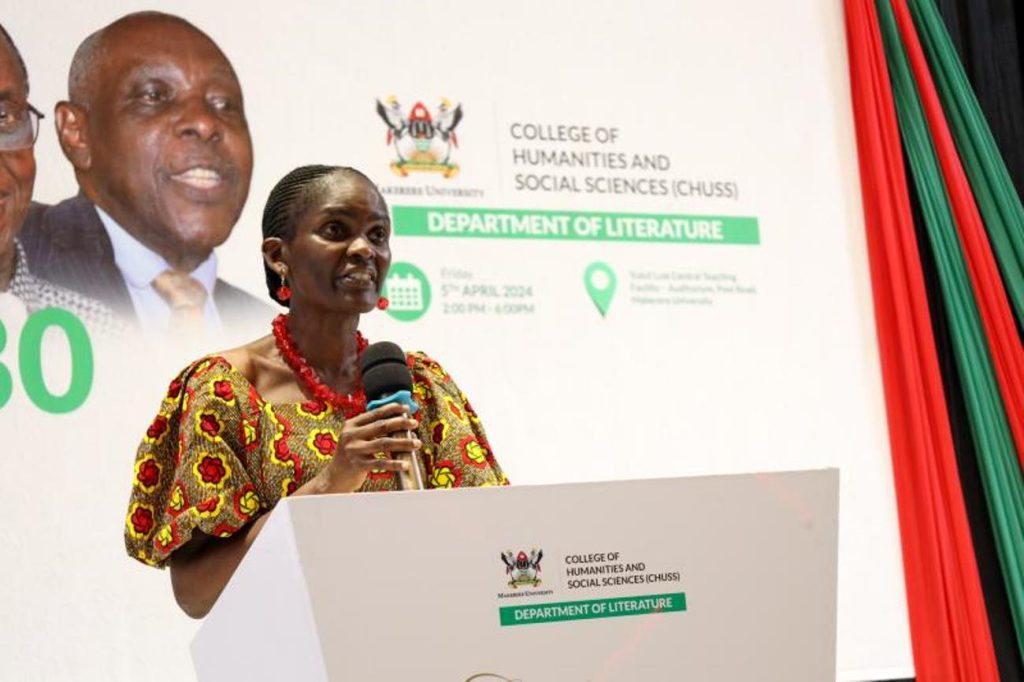
Kiguli recognized the efforts by the committee in providing the forum to promote critical debate and advance awareness of homegrown talent and outstanding service to humanity beyond Makerere’s century of existence.
Kiguli described Prof. Austin Bukenya as an orator who speaks many many languages fluently while Prof Arthur Gawandi as widely travelled and one who has met and dined with great writers.
In the spirit of continually drawing attention to our own work and accomplishments at Makerere University, the Department of Literature showcased oral performances from the students, readings, a keynote address by Prof. Abasi kiyimba and a panel discussion of Gakwandi and Bukenya Scholars.
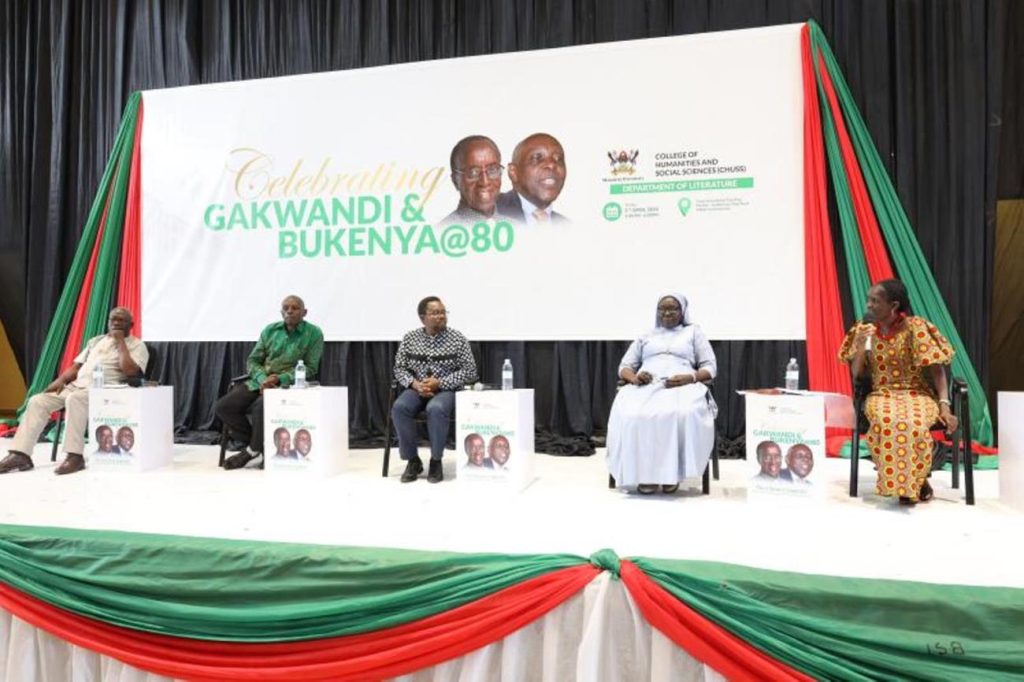
Most of the activities of the day were carried out by students from the Department of Literature in a bid to inspire them to think of the importance of following the work of our own scholars and practitioners. This effort aims at focusing on Gakwandi and Bukenya’s monumental achievements and promoting creative writing, critical debate and cultural production within Makerere University, Uganda and beyond.
The Keynote lecture by Prof. Abasi Kiyimba is downloadable below.
More readings below:
Makerere Celebrates Literary Titans: Gakwandi and Bukenya in Newvision: https://www.newvision.co.ug/category/education/makerere-celebrates-literary-titans-gakwandi-NV_185062
Mak set to honor Gakwandi and Bukenya @80:
https://chuss.mak.ac.ug/news/mak-set-celebrate-literary-legends-gakwandi-and-bukenya80-0
Gakwandi and a few rebels of Ugandan literature Wednesday, April 03, 2024: https://www.monitor.co.ug/uganda/oped/columnists/charles-onyango-obbo/gakwandi-and-a-few-rebels-of-ugandan-literature-4576498
Makerere Honors Professors Arthur And Austin For Their Contribution To Literature. Church of Uganda Family TV: https://youtu.be/oe5YW_an2vc?si=oQVnbg3v-fC4Pcdt
Makerere Professor Bukenya and Gakwandi honored. Beg TV: https://youtu.be/z-UhZ1ekgyg?si=Zgajf3dWqrnwjLM-
You may like
-
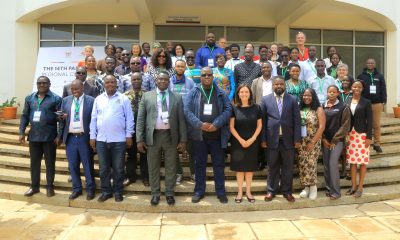

Harmonizing Africa’s Future through Musical Arts Education
-
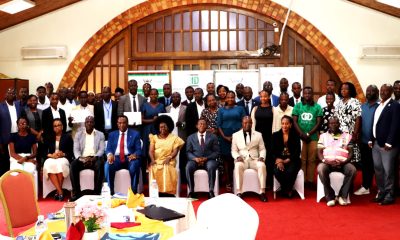

Swedish Ambassador Calls on Uganda to Lead Africa’s E-Mobility Revolution
-
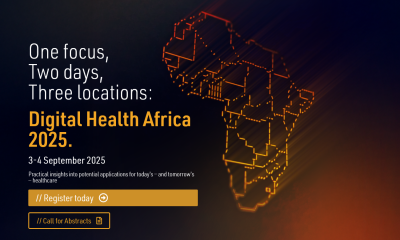

Call for Abstracts: Digital Health Africa 2025
-
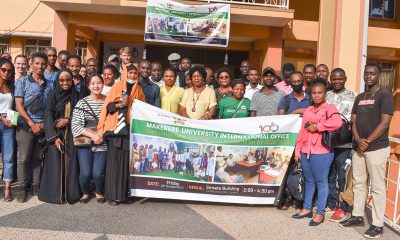

Undergraduate Admission Lists for International Applicants 2025/2026
-
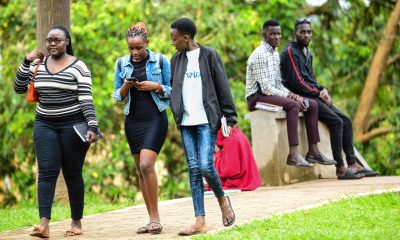

Admission Lists -Disability and District Quota Schemes 2025/26
-
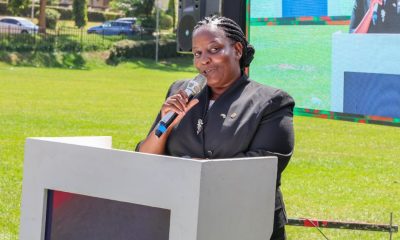

Emorimor Calls for Makerere to Upgrade Parenting Course
General
Diploma in Performing Arts Admission List 2025/26
Published
1 day agoon
July 4, 2025By
Mak Editor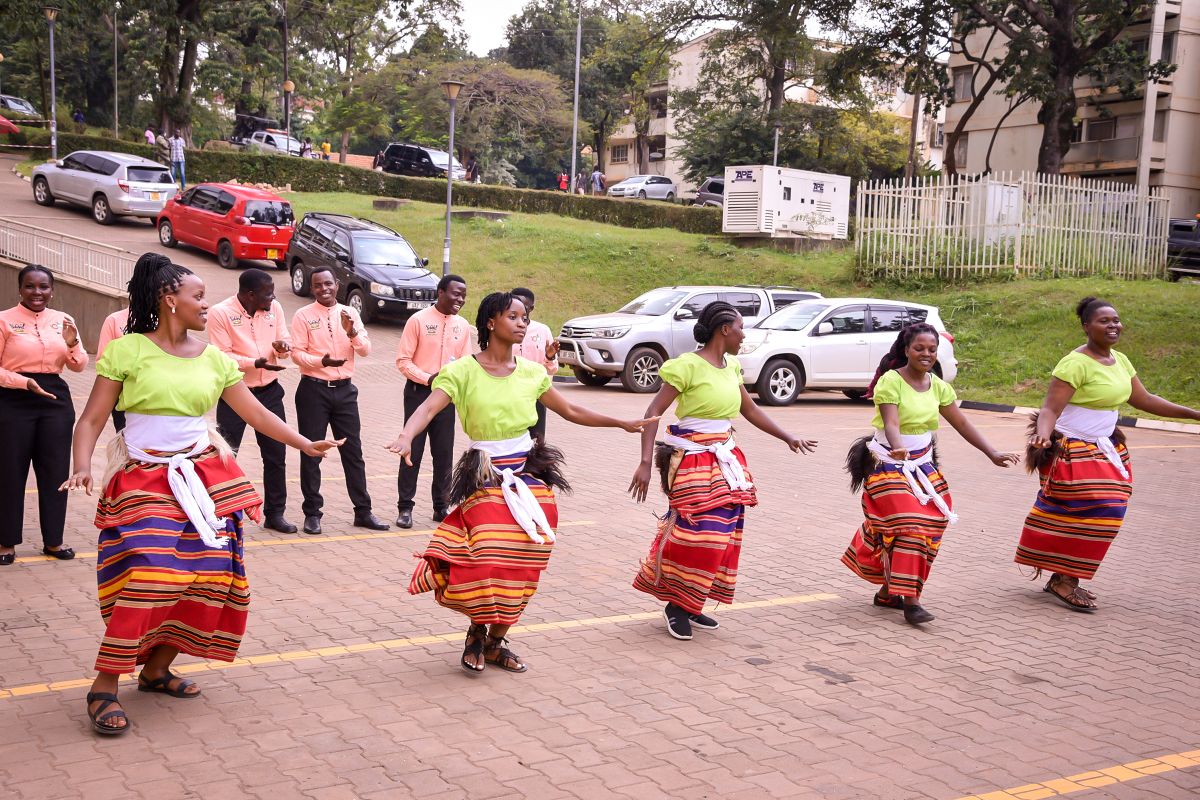
The Office of Academic Registrar, Makerere University has released the admission list of candidates who passed the special entry examinations for the Diploma in Performing Arts held on Saturday 17th May, 2025
The following have been admitted by the University’s Admissions Committee on Private Sponsorship for the 2025/26 Academic Year
General
Special Exam Results -Diploma in Performing Arts 2025/26
Published
1 week agoon
June 28, 2025By
Mak Editor
The results for the 2025/2026 special entry examination for the Diploma in Performing Arts held on Saturday 17th May, 2025. Candidates who scored a final mark of 50% and above passed the Examination and have been recommended to the university’s Admissions Committee for consideration.
Health
MakSPH, DJC Launch Short Course on Health Communication
Published
2 weeks agoon
June 20, 2025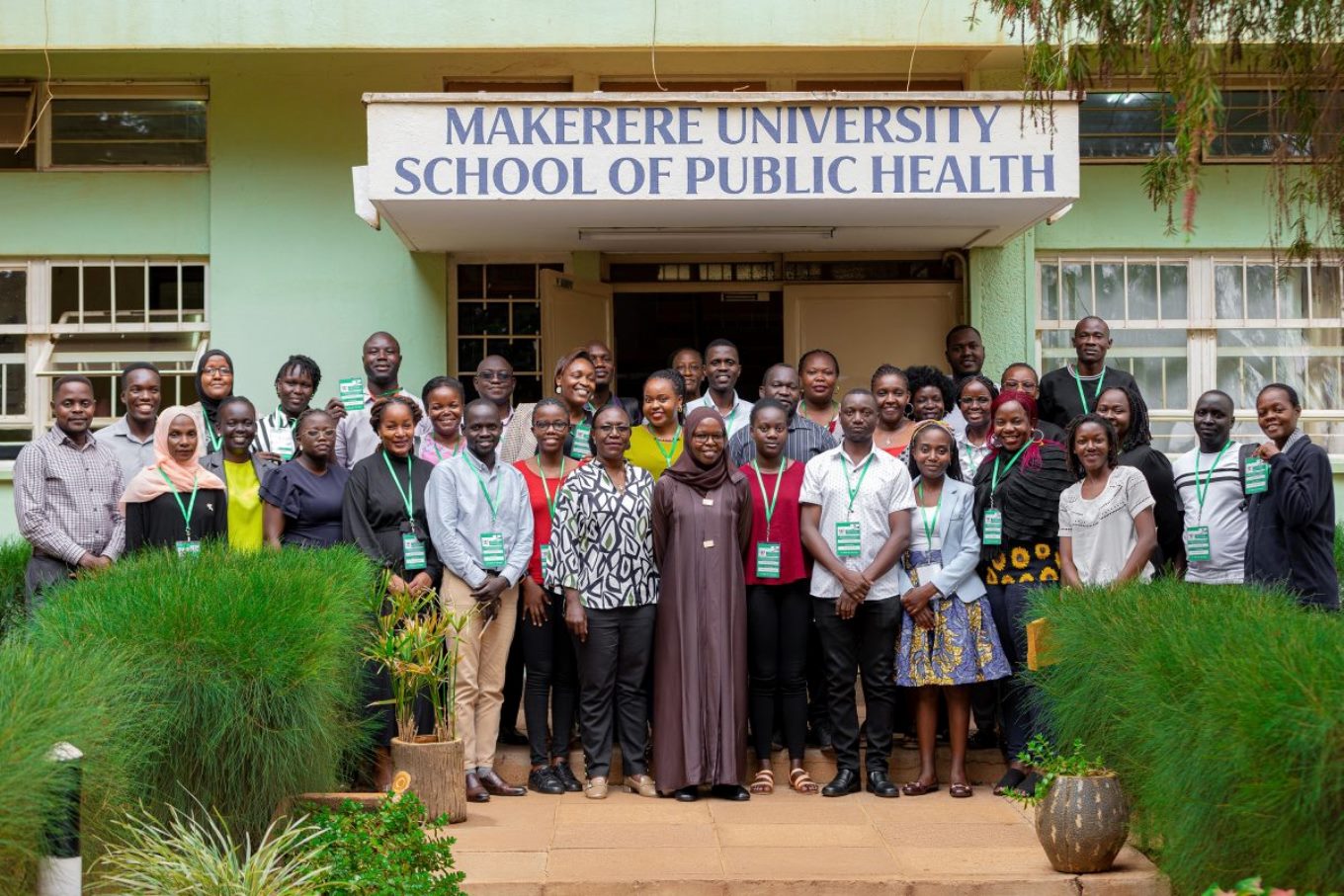
By Okeya John and Primrose Nabankema
The intensive one-month course, running for the first time from June 5 to July 24, 2025, is jointly offered by Makerere University School of Public Health (MakSPH)’s Department of Community Health and Behavioural Sciences (CHBS) and the Department of Journalism and Communication (DJC) at the School of Languages, Literature, and Communication (SLLC), co-designed in 2024 with support from the Rockefeller Foundation through Amref Health Africa.
It seeks to equip healthcare providers at the community level, public health and environmental health practitioners, communication specialists, health educators, community development officers, social scientists, and policy makers, among others, with strategic communication skills to improve public health messaging, strengthen community engagement, and support evidence-based interventions, ultimately empowering participants to effectively engage communities and improve population health outcomes across Uganda and the region.
Launching the course, the heads of the Department of Journalism and Communication and the Department of Community Health and Behavioural Sciences noted that participants who complete the short course will gain practical tools to influence behaviour change, build trust, and deliver timely, accurate, and relevant health information to the communities they serve. The first cohort attracted more than 60 applicants, with 36 reporting for the opening in-person session on June 5, 2025, at MakSPH in Mulago. Between now and July, participants will undergo a hands-on, multidisciplinary learning experience within the Certificate in Health Communication and Community Engagement program, which combines theory and practice.
Among the participants in the first cohort of the certificate course, designed as a pilot for the anticipated Master of Health Promotion and Communication to be jointly offered by the two departments at Makerere University, is Ms. Maureen Kisaakye, a medical laboratory technologist specialising in microbiology and antimicrobial resistance (AMR), and currently pursuing a Master’s in Immunology and Clinical Microbiology at Makerere. She is driven by a passion to help reverse the rising tide of AMR, a growing global health threat where drugs that once worked are no longer effective. Kisaakye is particularly concerned about common infections, like urinary tract infections, becoming increasingly resistant and harder to treat.
“I enrolled in this course because I’m an advocate against antimicrobial resistance, and it came at a time when I needed to deepen my knowledge on how to implement our projects more effectively and engage with communities. The experience has broadened my understanding of AMR and its impact on society, and strengthened my passion for community-driven health initiatives and advocacy,” Kisaakye said, explaining why she enrolled for the short course.
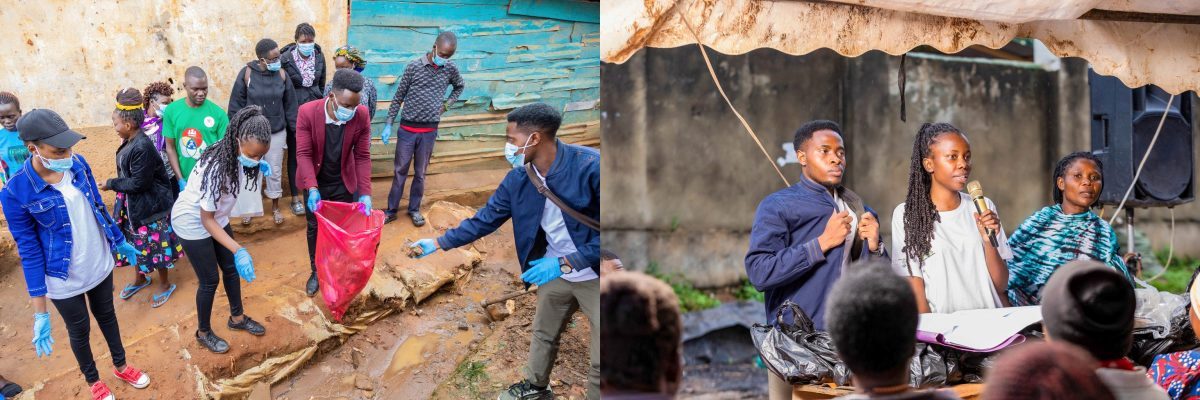
Kisaakye’s work in antimicrobial resistance extends beyond the lab. Having earned her degree in medical laboratory science from Mbarara University of Science and Technology, she founded Impala Tech Research in 2024 to drive impact and save lives. She has led grassroots AMR campaigns that integrate antimicrobial stewardship with water, sanitation, and hygiene (WASH) education in underserved urban communities, including the informal settlements in Kampala. She also has since designed peer-led initiatives that empower university students as AMR Champions, building a network of informed youth advocates. Kisaakye believes the health communication course will sharpen her ability to design and deliver impactful, community-centred interventions in response to the growing threat of drug resistance.
“The department collaborates with many partners within and beyond the University, including the School of Public Health, where we are working to develop the subfield of health communication and promotion. Our goal is to train specialists in this area and build a community of practice, something we have each been doing in our own spaces. There’s a lot of work ahead, and COVID-19 showed us just how urgently we need a generation trained to do this kind of work, and to do it very well,” said Dr. Aisha Nakiwala, Head of the Department of Journalism and Communication, during the opening of the short course on June 5.
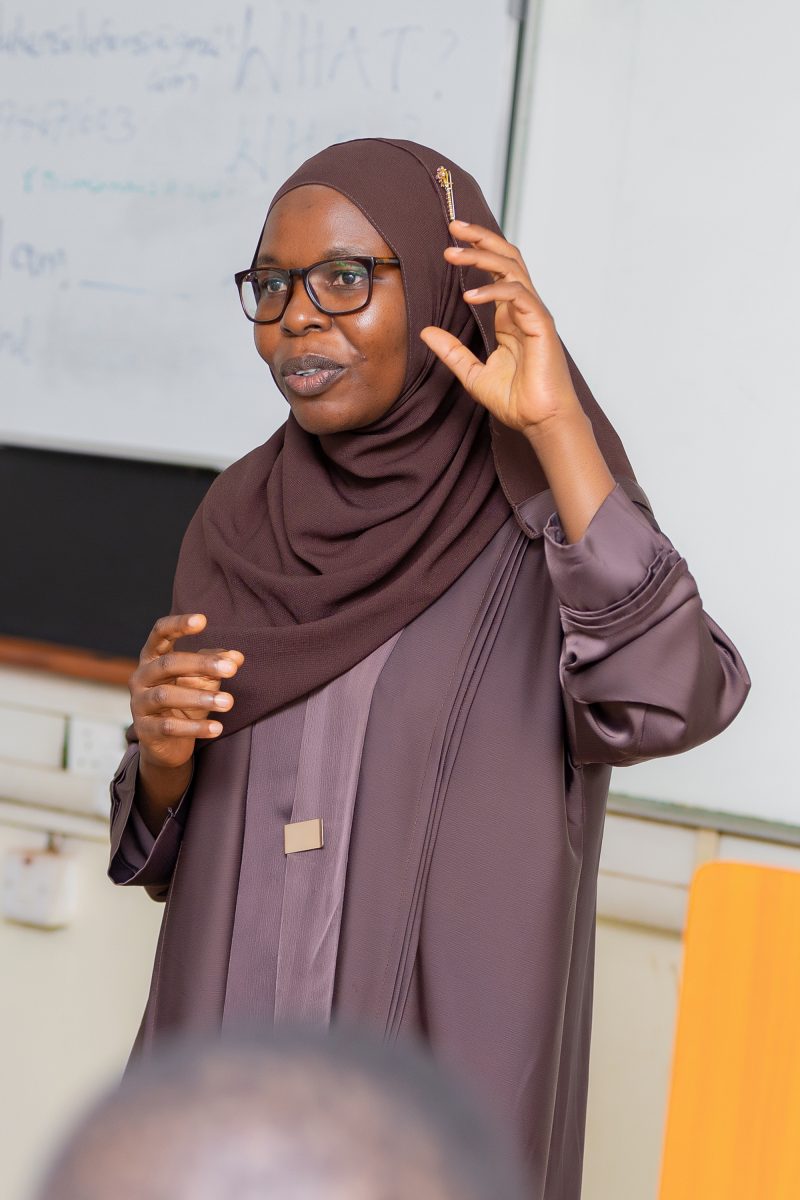
She assured participants they were in good hands and underscored the importance of the partnership between the Department of Journalism and Communication and the School of Public Health, describing it as a vital collaboration that brings together strategic communication and public health expertise. This dynamic, multidisciplinary approach, she noted, is essential to developing practical solutions that empower communities, strengthen health systems, and ultimately improve livelihoods.
The course offers a hands-on, multidisciplinary learning experience, with participants intended to explore key modules including Health Communication and Promotion, Risk Communication, Smart Advocacy, Community Mapping, Community Mobilisation and Empowerment, and Strategies for Community Engagement. The course combines theory with real-world application, and its assessment includes a field-based project and a final exam.
“You are our first cohort. We are seeing the fruits of our efforts in bringing this short course to life. It was born out of a joint initiative to develop a Master’s programme in Health Promotion and Communication,” said Dr. Christine Nalwadda, Head of the Department of Community Health and Behavioural Sciences. “We carried out extensive consultations with our different key stakeholders during the process and discovered a real need for such a course. It was the stakeholders who even named it; this course name didn’t come from us.”
For Kisaakye, by the end of the course in July, she hopes to have sharpened her skills in health promotion and strategic communication, particularly in crafting targeted messages that help individuals and communities effectively respond to threats such as antimicrobial resistance. She also aims to gain practical experience in designing, implementing, and evaluating community health initiatives that can strengthen her advocacy and drive lasting impact.
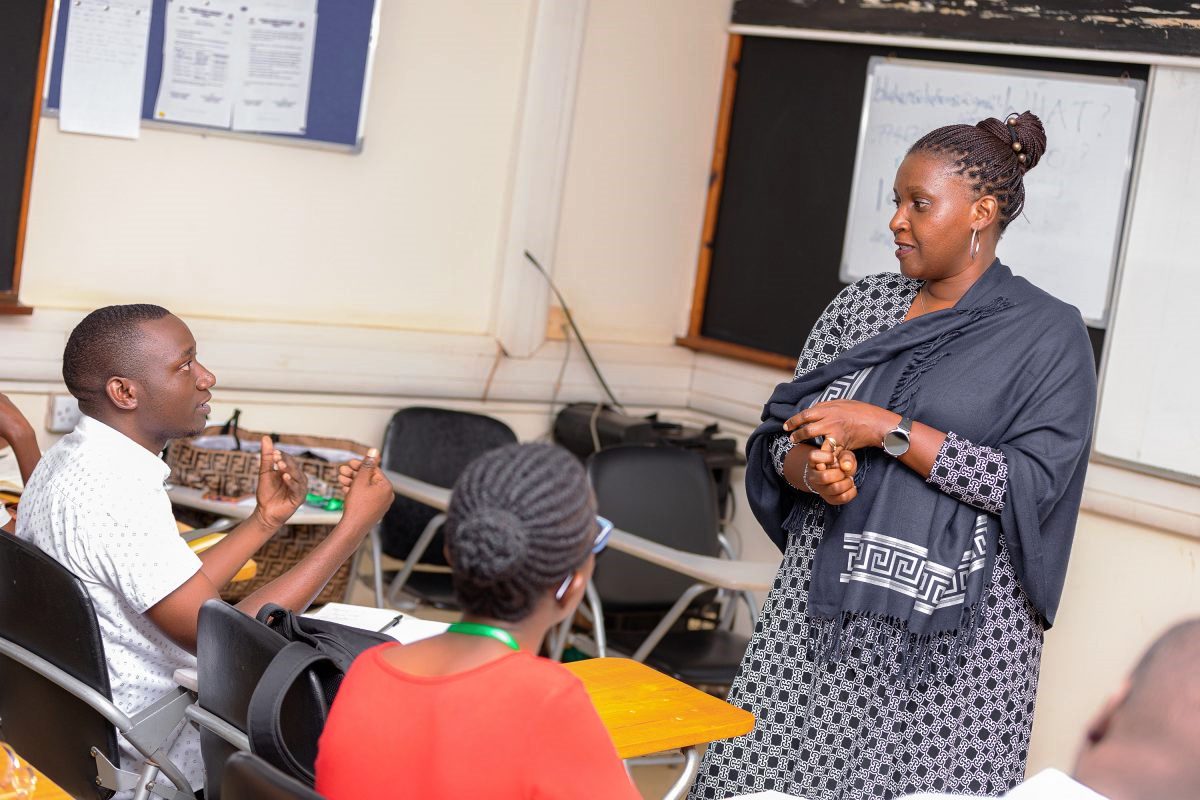
Trending
-

 Education1 day ago
Education1 day agoAdmission List to Bachelor of Education External (BED) 2025/26 -Private Sponsorship
-

 General1 week ago
General1 week agoMature Age Scheme Exam Results for 2025/2026
-

 General2 weeks ago
General2 weeks agoFreshers’ Joining Instructions 2025/2026
-

 General4 days ago
General4 days agoUndergraduate Admission List Self Sponsorship Scheme 2025/2026
-

 General2 weeks ago
General2 weeks agoMastercard Foundation Board pays its inaugural visit to Makerere University
